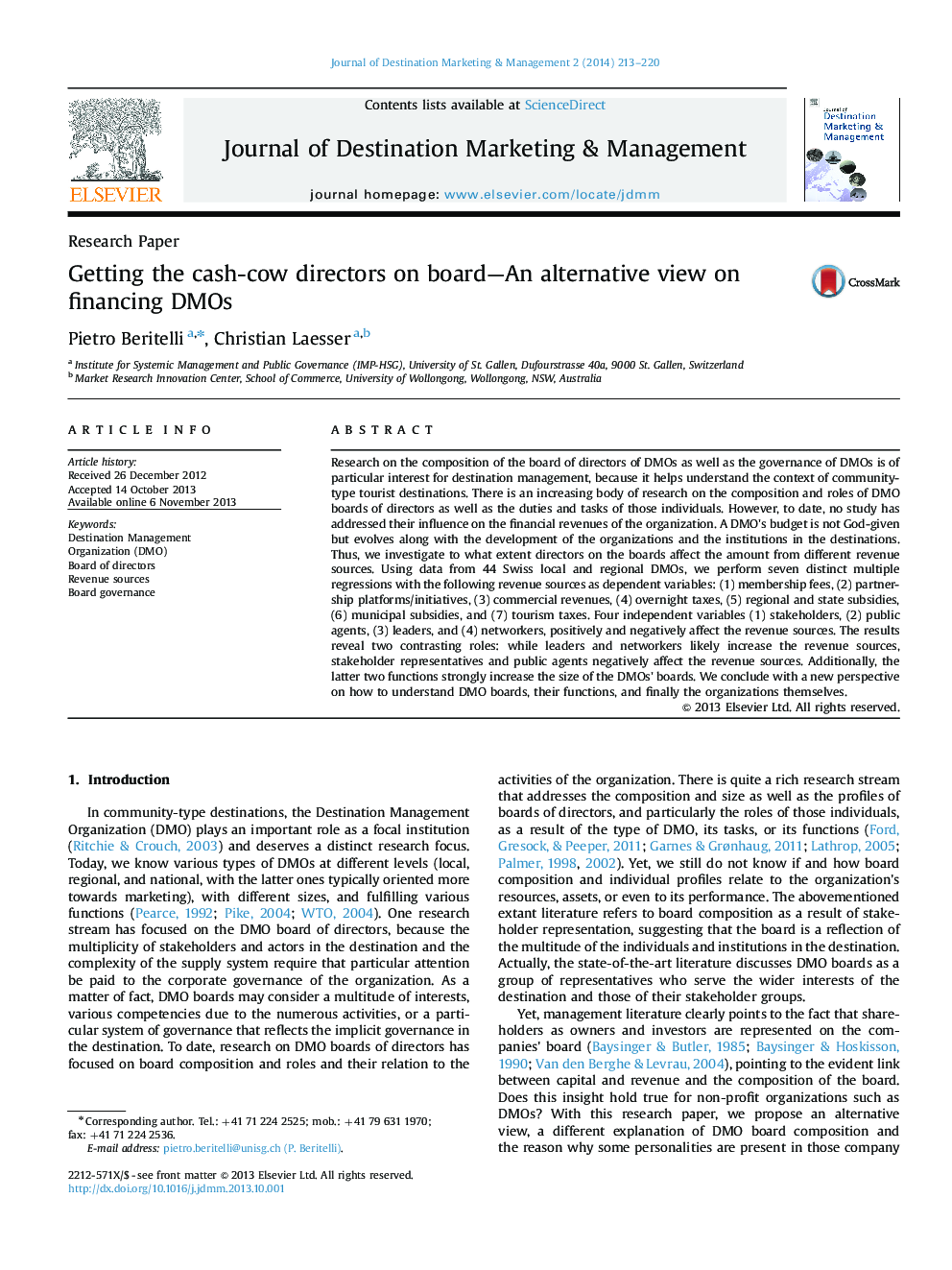| Article ID | Journal | Published Year | Pages | File Type |
|---|---|---|---|---|
| 1011150 | Journal of Destination Marketing & Management | 2014 | 8 Pages |
Research on the composition of the board of directors of DMOs as well as the governance of DMOs is of particular interest for destination management, because it helps understand the context of community-type tourist destinations. There is an increasing body of research on the composition and roles of DMO boards of directors as well as the duties and tasks of those individuals. However, to date, no study has addressed their influence on the financial revenues of the organization. A DMO's budget is not God-given but evolves along with the development of the organizations and the institutions in the destinations. Thus, we investigate to what extent directors on the boards affect the amount from different revenue sources. Using data from 44 Swiss local and regional DMOs, we perform seven distinct multiple regressions with the following revenue sources as dependent variables: (1) membership fees, (2) partnership platforms/initiatives, (3) commercial revenues, (4) overnight taxes, (5) regional and state subsidies, (6) municipal subsidies, and (7) tourism taxes. Four independent variables (1) stakeholders, (2) public agents, (3) leaders, and (4) networkers, positively and negatively affect the revenue sources. The results reveal two contrasting roles: while leaders and networkers likely increase the revenue sources, stakeholder representatives and public agents negatively affect the revenue sources. Additionally, the latter two functions strongly increase the size of the DMOs' boards. We conclude with a new perspective on how to understand DMO boards, their functions, and finally the organizations themselves.
